-
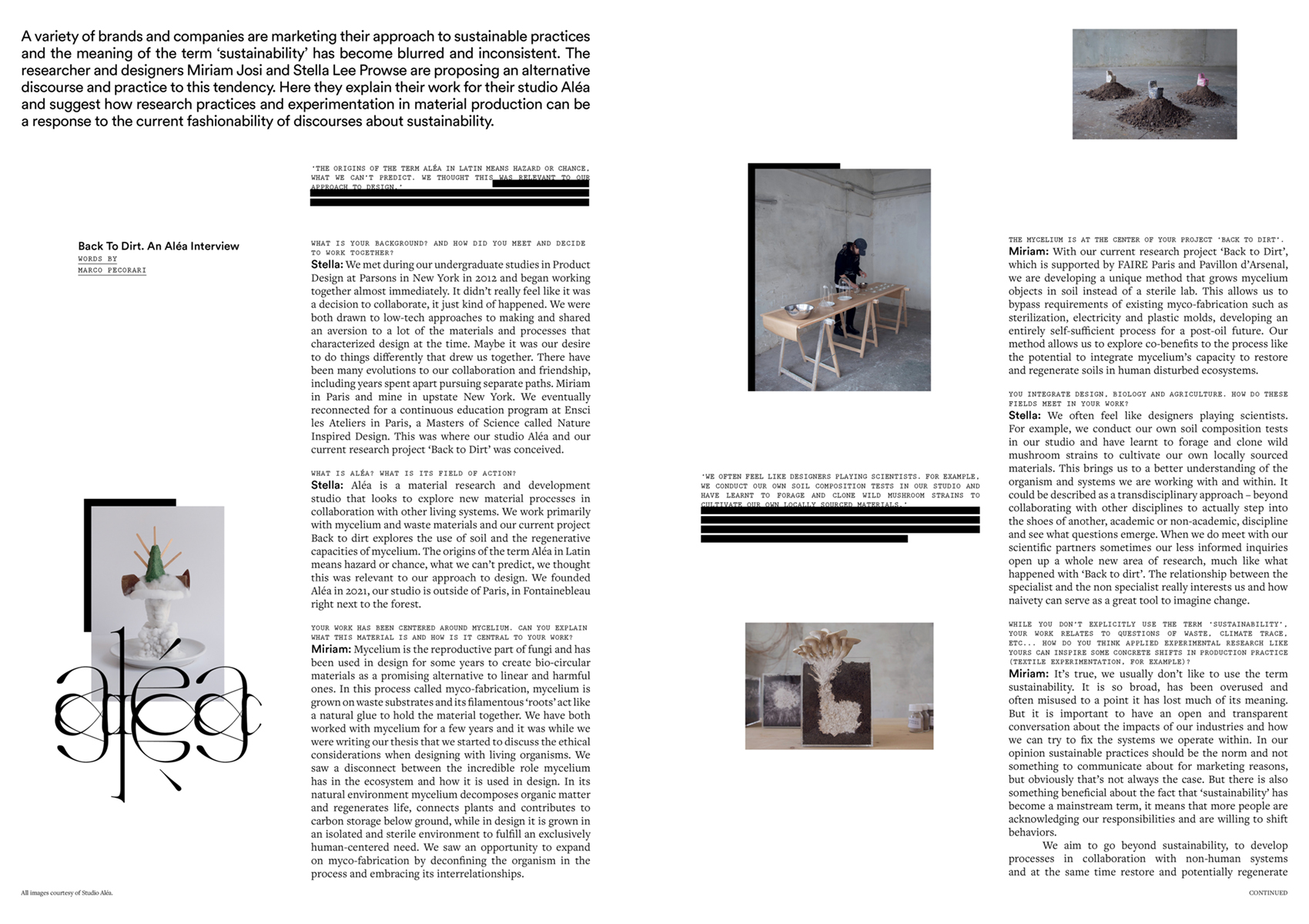
Back to Dirt. An Aléa Interview
A variety of brands and companies are marketing their approach to sustainable practices and the meaning of the term ‘sustainability’ has become blurred and inconsistent. The researcher and designers Miriam Josi and Stella Lee Prowse are proposing an alternative discourse and practice to this tendency. Here they explain their work for their studio Aléa and suggest how research practices and experimentation in material production can be a response to the current fashionability of discourses about sustainability. Interview by Marco Pecorari.
-
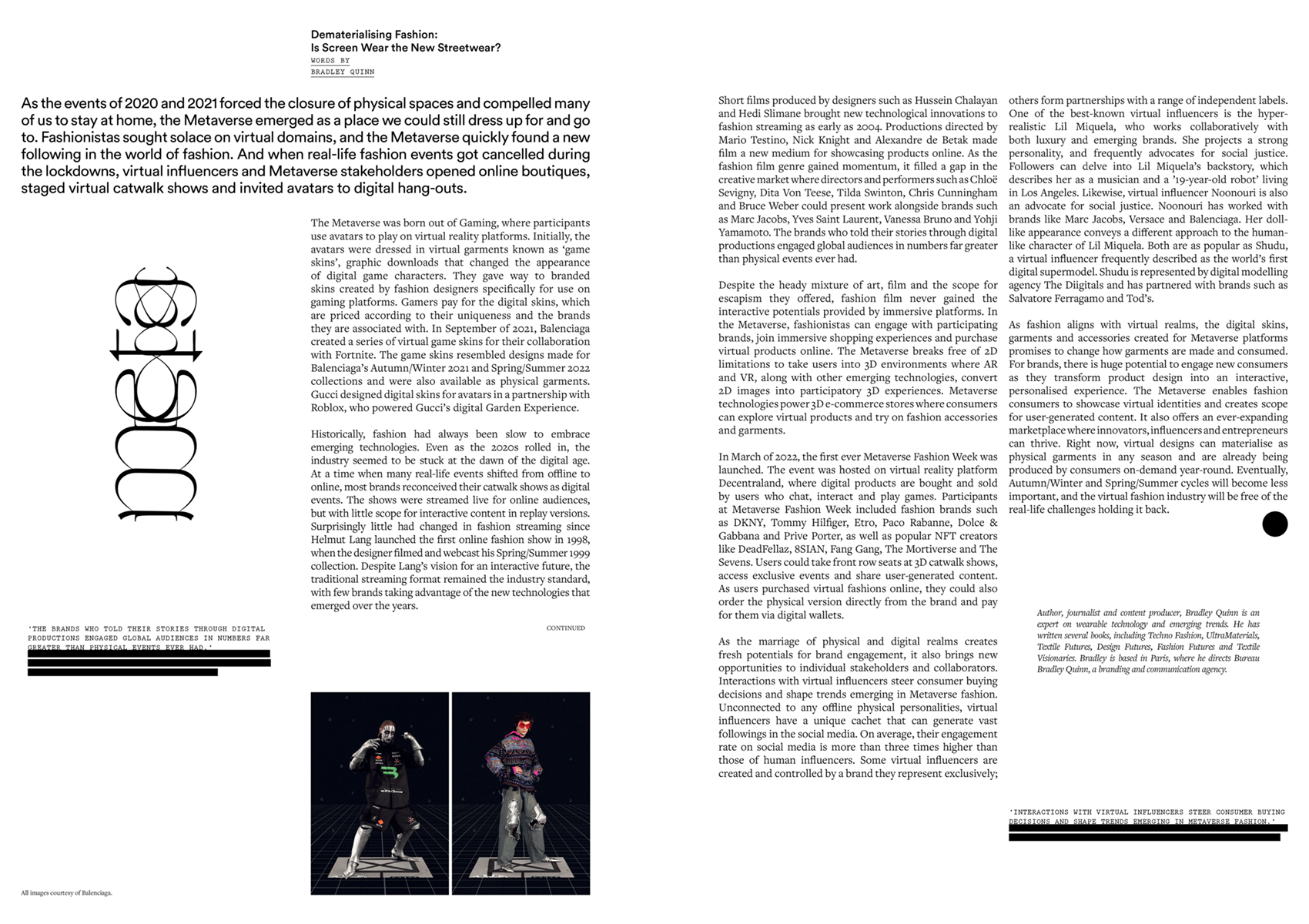
Dematerialising Fashion: Is Screen Wear the New Streetwear?
As the events of 2020 and 2021 forced the closure of physical spaces and compelled many of us to stay at home, the Metaverse emerged as a place we could still dress up for and go to. Fashionistas sought solace on virtual domains, and the Metaverse quickly found a new following in the world of fashion. And when real-life fashion events got cancelled during the lockdowns, virtual influencers and Metaverse stakeholders opened online boutiques, staged virtual catwalk shows and invited avatars to digital hang-outs. Words by Bradley Quinn.
-
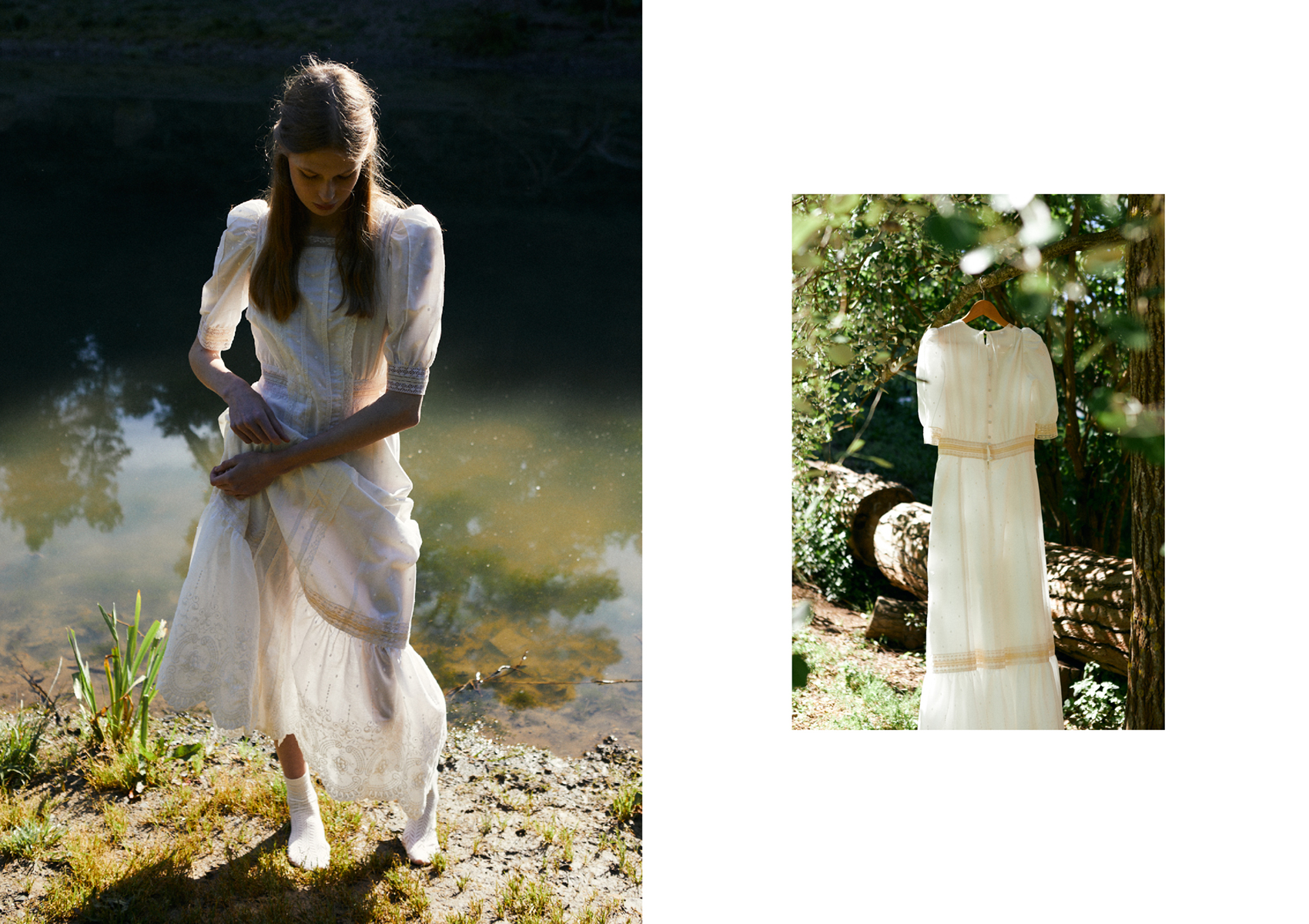
Fashion Story: The Lane
Photography by Maider Agirre and fashion by Alba Monfort.
-
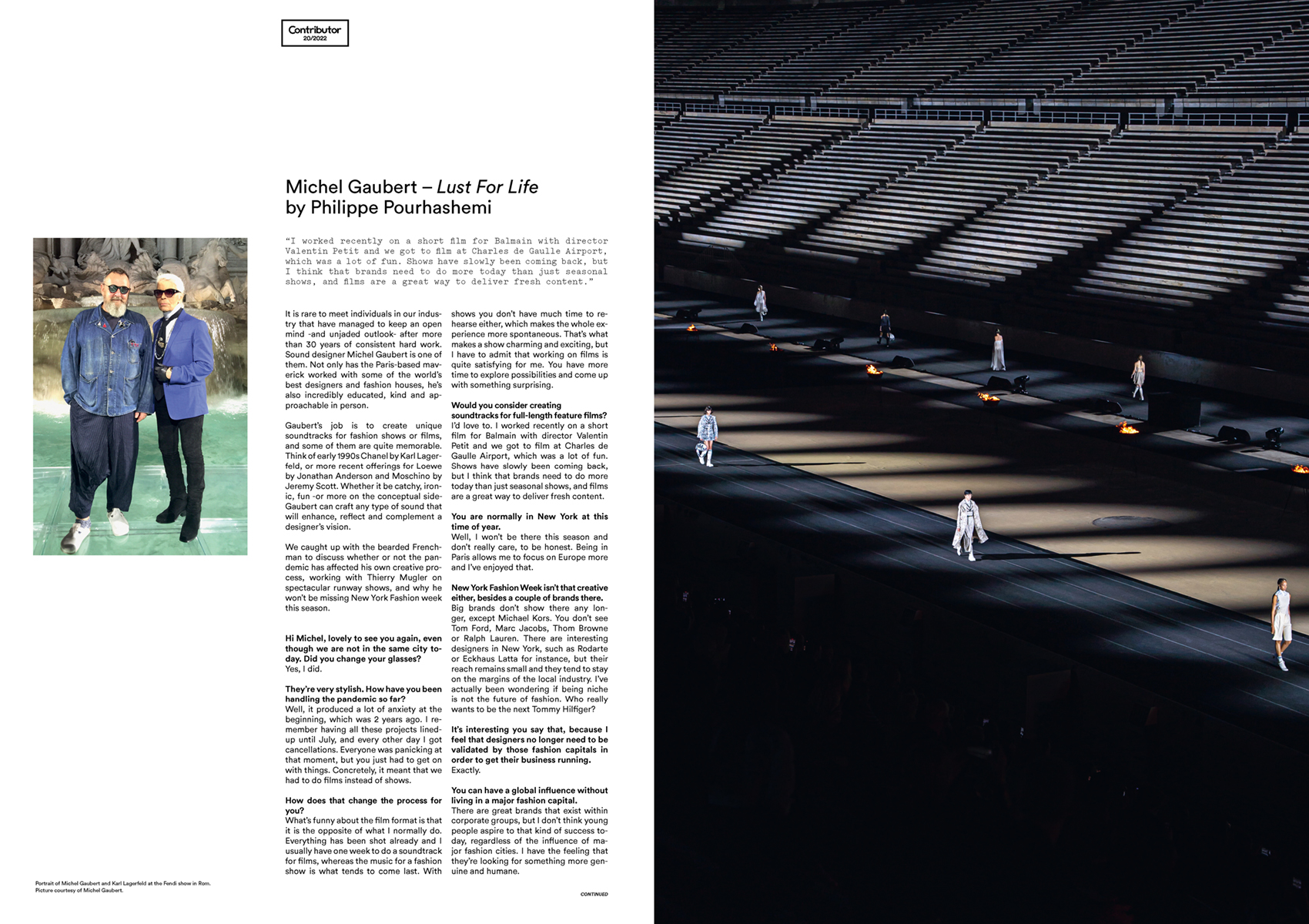
Lust For Life. Interview with Michel Gaubert
Michel Gaubert’s job is to create unique soundtracks for fashion shows or films, and some of them are quite memorable. Think of early 1990s Chanel by Karl Lagerfeld, or more recent offerings for Loewe by Jonathan Anderson and Moschino by Jeremy Scott. Whether it be catchy, ironic, fun – or more on the conceptual side – Gaubert can craft any type of sound that will enhance, reflect and complement a designer’s vision. Interview by Philippe Pourhashemi.
-
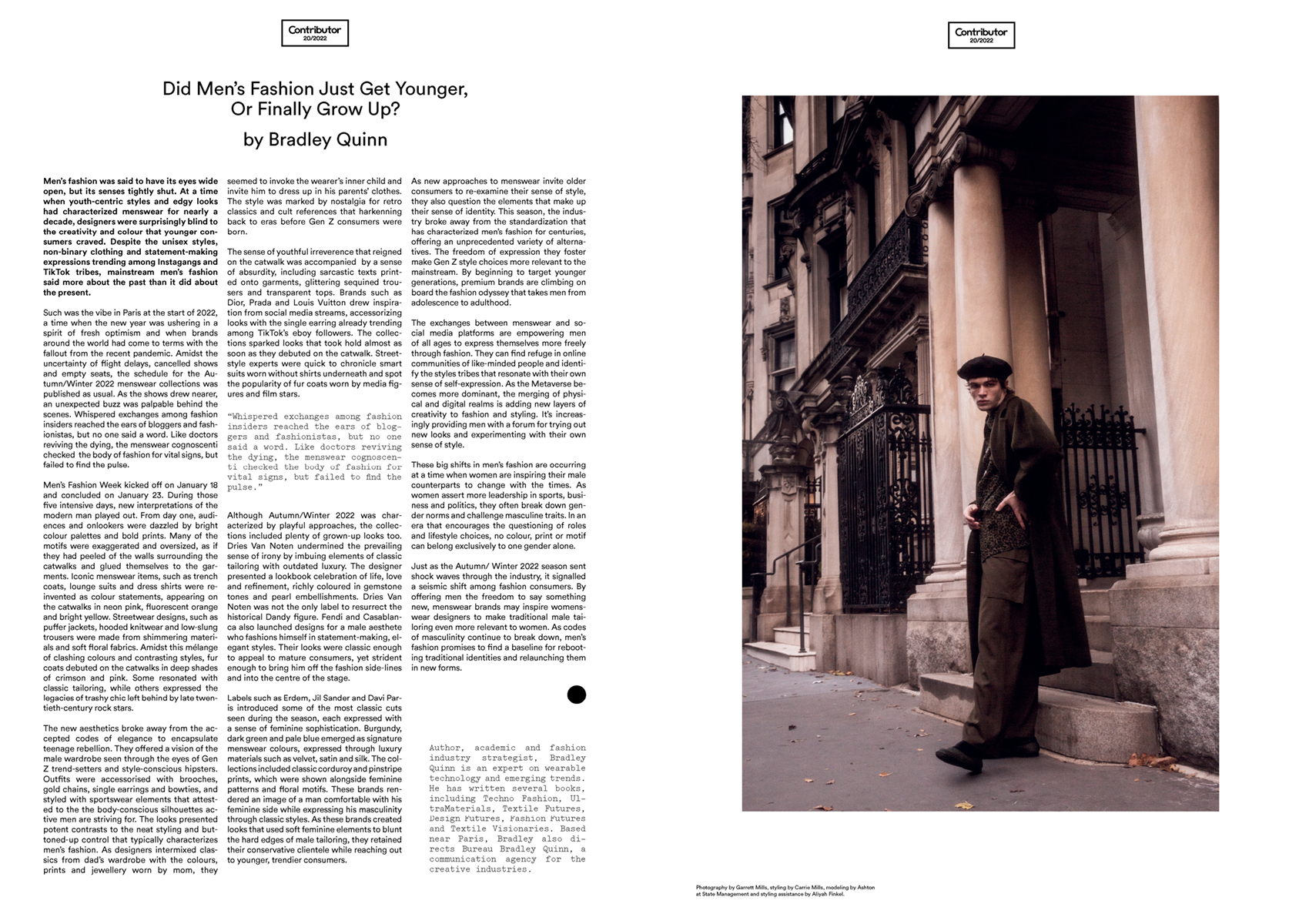
Did Men’s Fashion Just Get Younger, Or Finally Grow Up?
Men’s fashion was said to have its eyes wide open, but its senses tightly shut. At a time when youth-centric styles and edgy looks had characterized menswear for nearly a decade, designers were surprisingly blind to the creativity and colour that younger consumers craved. Like doctors reviving the dying, the menswear cognoscenti checked the body of fashion for vital signs, but failed to find the pulse. By Bradley Quinn.
-
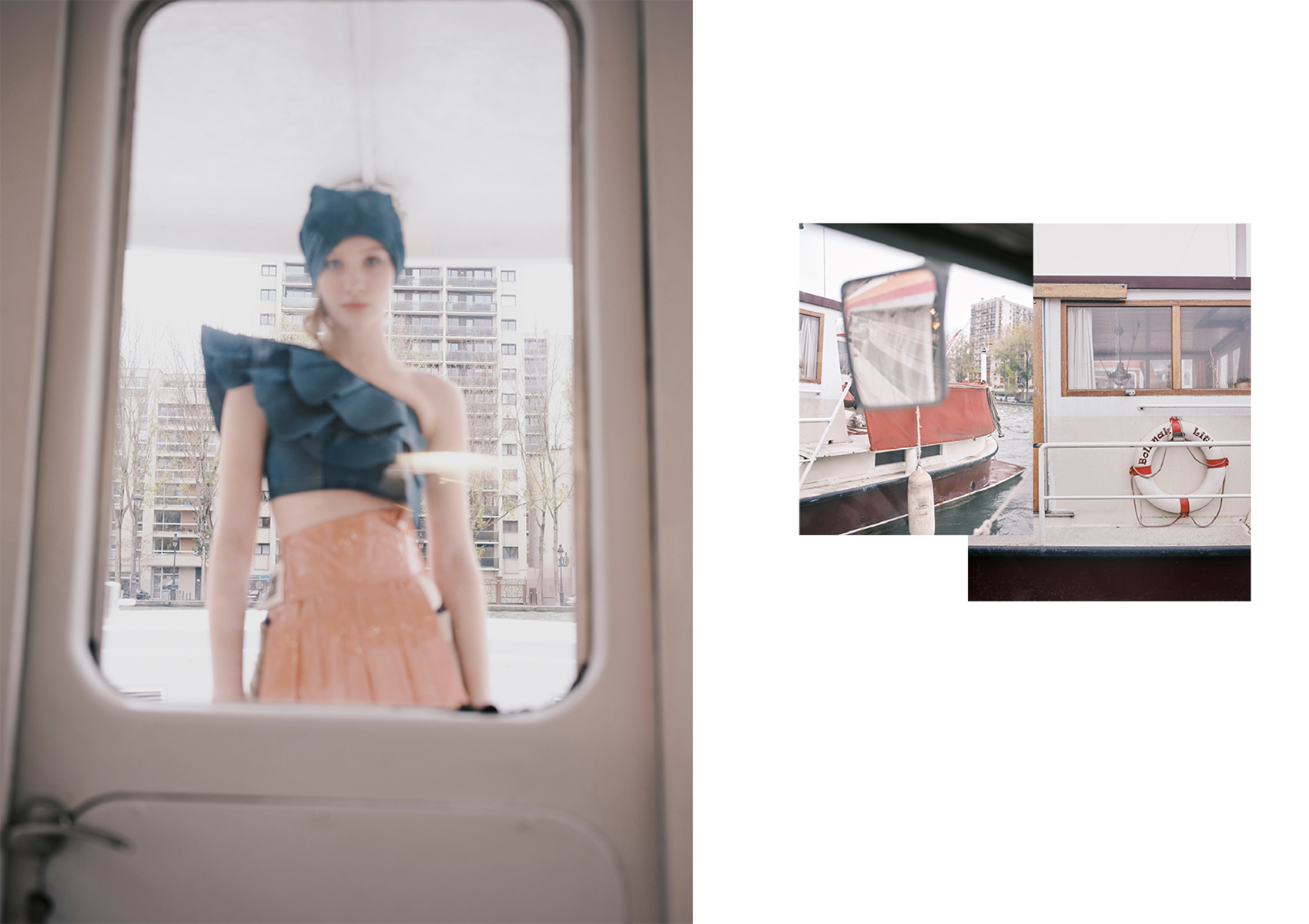
Fashion Story: Manureva
Photography by Pascale Lourmand, fashion and beauty by Maximiliano Bellik.
-
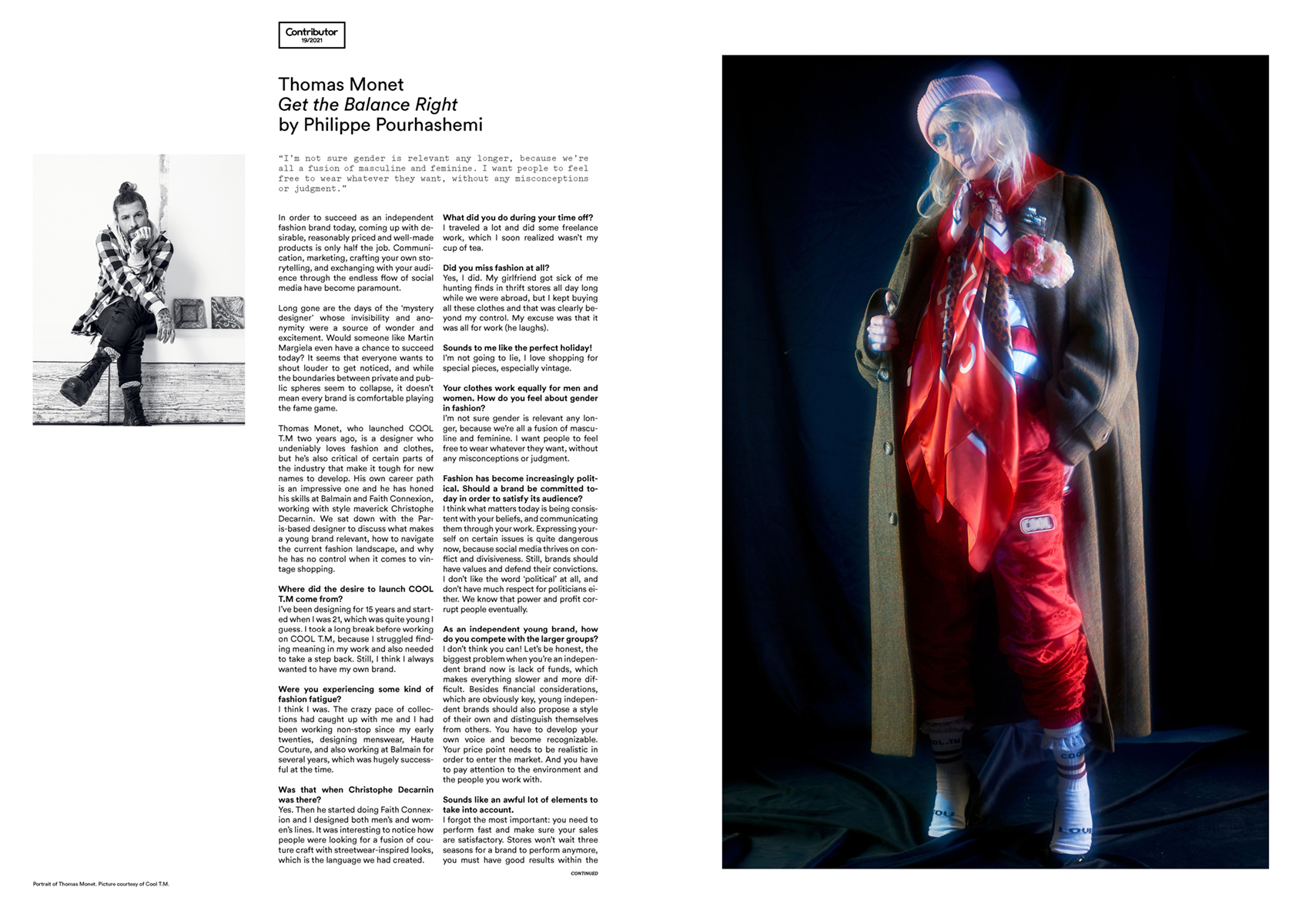
Get the Balance Right. Interview with Thomas Monet
Thomas Monet, who launched COOL T.M two years ago, is a designer who undeniably loves fashion and clothes, but he’s also critical of certain parts of the industry that make it tough for new names to develop. His own career path is an impressive one and he has honed his skills at Balmain and Faith Connexion, working with style maverick Christophe Decarnin. We sat down with the Paris-based designer to discuss what makes a young brand relevant, how to navigate the current fashion landscape, and why he has no control when it comes to vintage shopping. Interview by Philippe Pourhashemi
-
Fashion Story: Vocational Guidance
Photography by Kris Dashkevich and fashion by Liza Vasilevskaya.
-
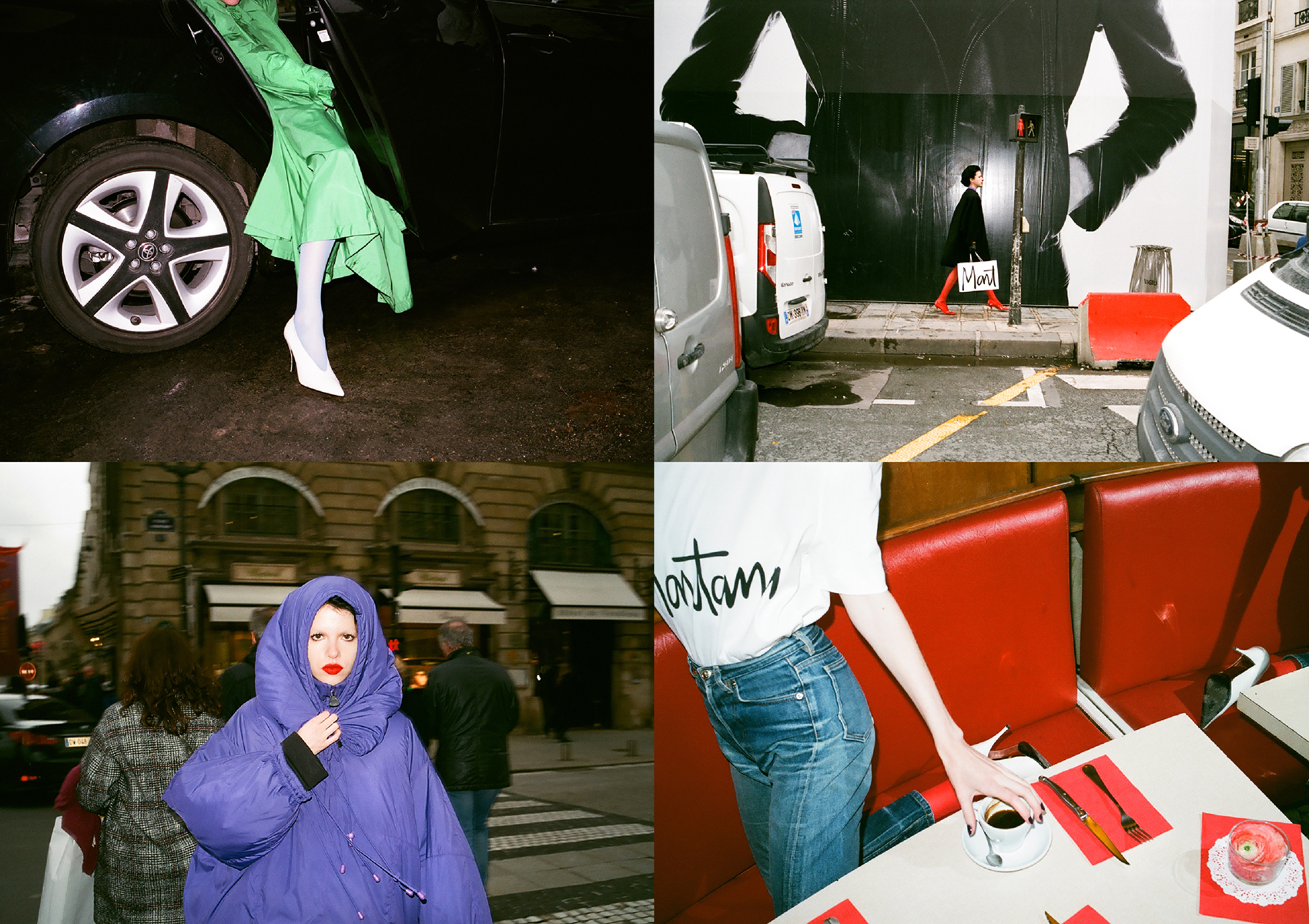
Interview. Byronesque and the Value of Fashion History
Fashion archives are living in a new era. Not only are luxury fashion brands investing in rebuilding their own past, but a new definition and consumption of vintage clothing is emerging. The revival of the past has become more than an expression of nostalgia. Rather, it is an answer to today’s mass production and consumption. We asked Gill Linton, co-founder of Byronesque – the online editorial-based shop for contemporary vintage fashion – to lead us through the intricate world of ‘future vintage’. Together we reflect on the practice of commercialising the past and its potential for reaffirming values that the fashion industry has forgotten, but that may come back. Interview by Marco Pecorari and photography by Maxime Ballesteros.
-
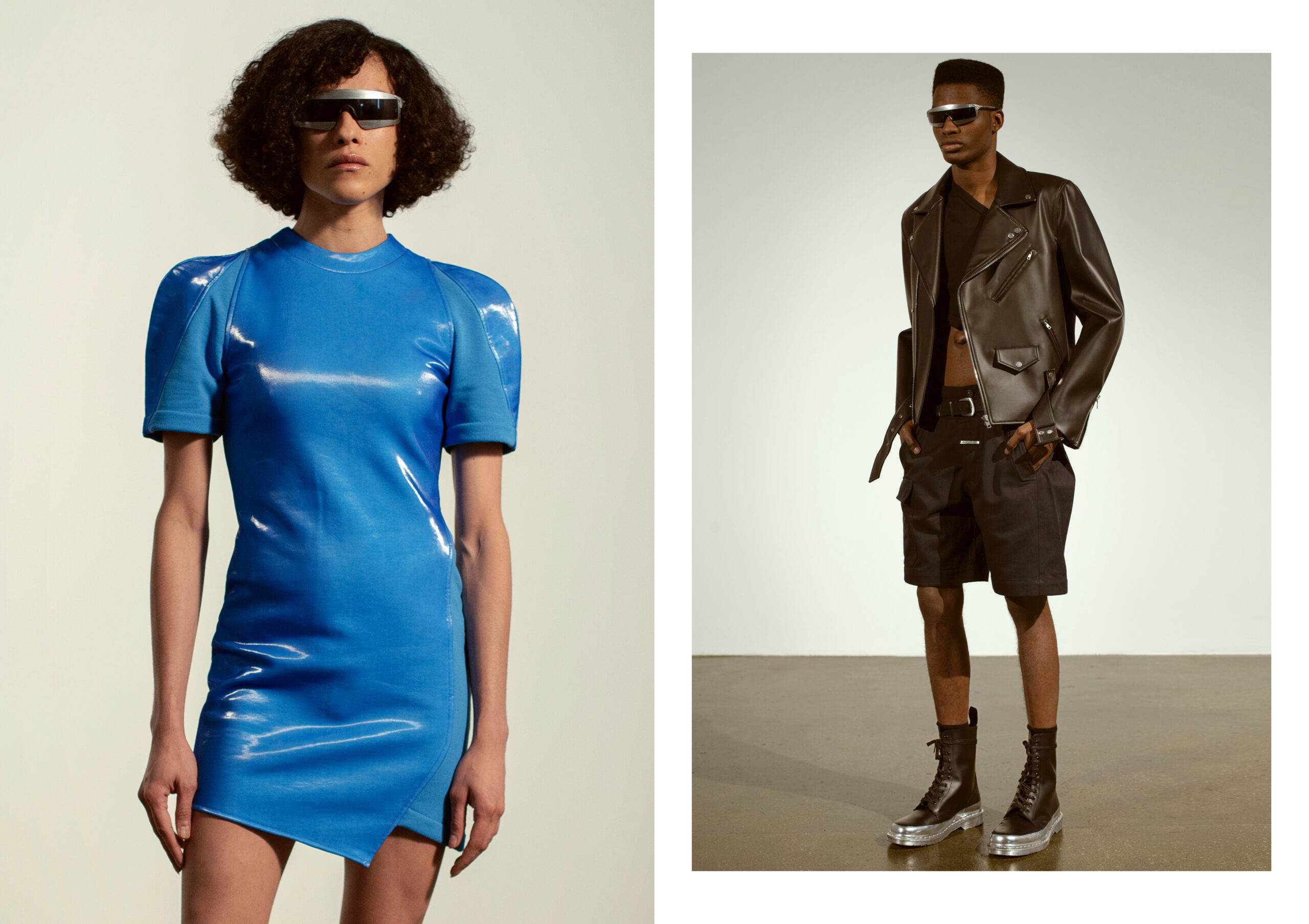
ZILVER. Interview with Pedro Lourenço
Pedro Lourenço is no stranger to the fashion industry. He showcased his first collection at the age of twelve, working for his mother’s brand in São Paulo. At nineteen he launched his own critically acclaimed brand in Paris. Today, Pedro Lourenço has developed a sustainable approach to fashion design with his brand ZILVER. The brand philosophy at ZILVER is the idea of future-proof habits. How can you use resources in a clever way? How do you make things last? What kind of new solutions can you find to construct and manufacture materials? Interview by Lucas Dias and photography by Balint Barna.
